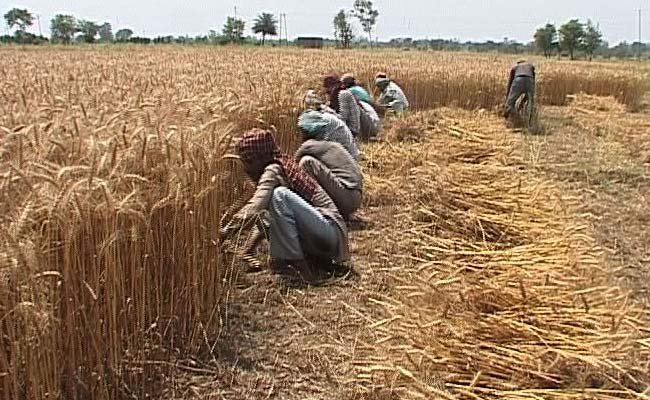OECD Report: Indian Farmers Faced $169 Billion Implicit Tax Due to Export Measures in 2022
In 2022, Indian farmers experienced implicit taxation totaling $169 billion as a result of export bans, duties, and permits on various commodities such as wheat and rice. This taxation was imposed to stabilize prices for consumers, as revealed by the latest assessment on global agricultural policy and support conducted by the Organisation for Economic Co-operation and Development (OECD).
India’s Negative Market Price Support (MPS) Policy
India’s negative MPS policy taxation constituted over 80% of such taxes globally in 2022, making it a significant contributor to the phenomenon. Among the 54 countries analyzed in the report, the implicit taxation imposed on farmers amounted to about $200 billion globally.
Understanding Market Price Support (MPS)
Market Price Support (MPS) measures the benefit or loss that farmers experience due to domestic prices that differ from world prices. Specifically, MPS represents the annual monetary value of gross transfers from consumers and taxpayers to agricultural producers. These transfers arise from policy measures that create a gap between domestic market prices and border prices of specific agricultural commodities, measured at the farm gate level.
Budgetary Transfers and Offset
While some emerging economies managed to offset negative MPS through other budgetary support, India faced challenges in this regard. Budgetary transfers to Indian farmers, including subsidies for variable inputs like fertilizers, electricity, and irrigation water, along with the PM-KISAN initiative, did not fully offset the price-depressing impact of domestic marketing regulations and trade policies.
Impact of Export Restrictions
India introduced export bans, duties, and permits on several commodities in 2022, partly due to the outbreak of war in Ukraine and a heatwave. While these measures aimed to keep domestic prices stable for consumers, they led to lower receipts for producers (farmers) compared to what they would have earned without these policies. Affected commodities included various types of rice, wheat, sugar, onions, and related products.
OECD Report Findings
The OECD report, released on October 30, noted that virtually all gross producer transfers, whether positive or negative, often come in forms that can distort production and trade. India’s net support to producers has been negative over the last two decades, with fluctuations.
Global Agricultural Support
Across the 54 countries covered in the report, total support directed to the agricultural sector averaged $851 billion per year from 2020 to 2022. This marked an increase from the $696 billion averaged in the three years prior to 2020, primarily due to responses to the COVID-19 pandemic, inflationary pressures, and the impact of the war in Ukraine.
Forms of Support and Their Impact
Two-thirds of the $630 billion in positive support to producers across the 54 countries were considered “potentially most distorting” to production and trade. These forms of support included payments based on output and unconstrained use of variable inputs. Such support is known for its inefficiency and lack of targeting, often resulting in higher prices for inputs or land values.
Differences Between Emerging Economies and OECD Nations
The report highlighted that emerging economies had a higher prevalence of potentially most distorting policies, generating positive support equal to 10% of gross farm receipts and implicit taxation equal to 6% of gross farm receipts in 2020-22. In contrast, OECD countries had positive support equal to 7% of gross farm receipts, but they did not implicitly tax producers.
Month: Current Affairs - November, 2023
Category: India Nation & States Current Affairs








